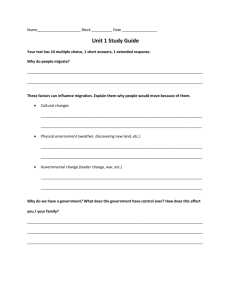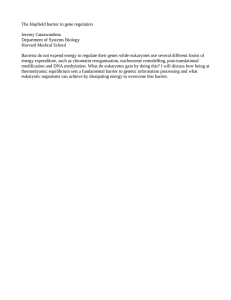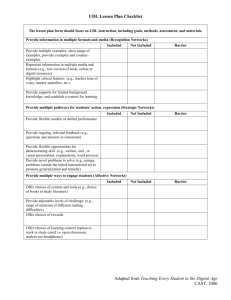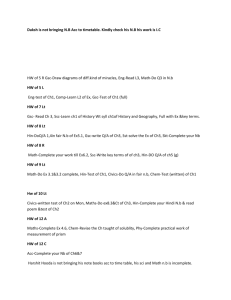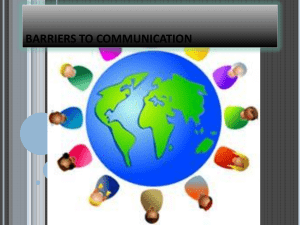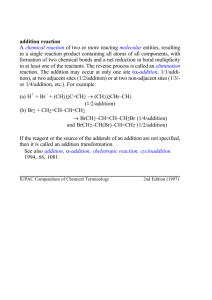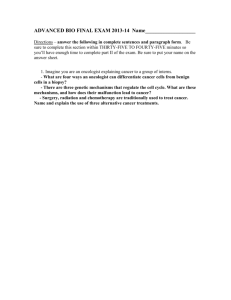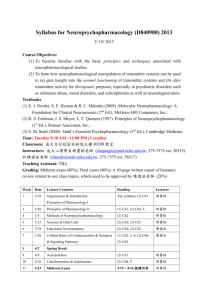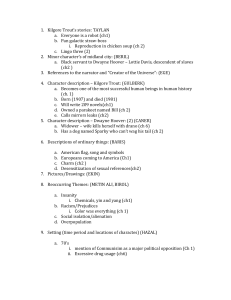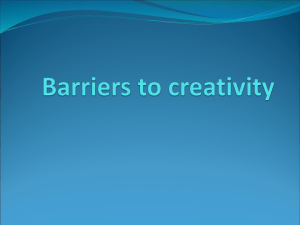Title - Yoodoo
advertisement
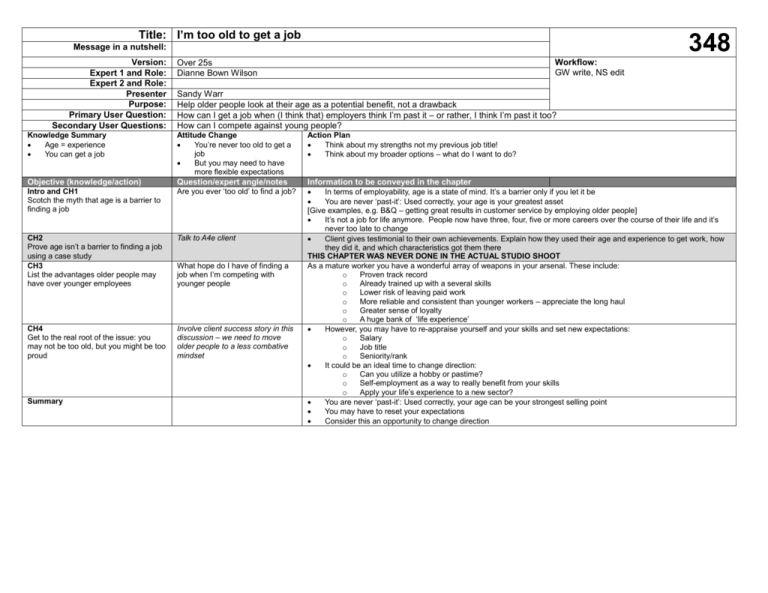
Title: I’m too old to get a job 348 Message in a nutshell: Version: Expert 1 and Role: Expert 2 and Role: Presenter Purpose: Primary User Question: Secondary User Questions: Workflow: GW write, NS edit Over 25s Dianne Bown Wilson Sandy Warr Help older people look at their age as a potential benefit, not a drawback How can I get a job when (I think that) employers think I’m past it – or rather, I think I’m past it too? How can I compete against young people? Knowledge Summary Age = experience You can get a job Attitude Change You’re never too old to get a job But you may need to have more flexible expectations Action Plan Think about my strengths not my previous job title! Think about my broader options – what do I want to do? Objective (knowledge/action) Question/expert angle/notes Information to be conveyed in the chapter Intro and CH1 Scotch the myth that age is a barrier to finding a job Are you ever ‘too old’ to find a job? CH2 Prove age isn’t a barrier to finding a job using a case study CH3 List the advantages older people may have over younger employees Talk to A4e client CH4 Get to the real root of the issue: you may not be too old, but you might be too proud Involve client success story in this discussion – we need to move older people to a less combative mindset In terms of employability, age is a state of mind. It’s a barrier only if you let it be You are never ‘past-it’: Used correctly, your age is your greatest asset [Give examples, e.g. B&Q – getting great results in customer service by employing older people] It’s not a job for life anymore. People now have three, four, five or more careers over the course of their life and it’s never too late to change Client gives testimonial to their own achievements. Explain how they used their age and experience to get work, how they did it, and which characteristics got them there THIS CHAPTER WAS NEVER DONE IN THE ACTUAL STUDIO SHOOT As a mature worker you have a wonderful array of weapons in your arsenal. These include: o Proven track record o Already trained up with a several skills o Lower risk of leaving paid work o More reliable and consistent than younger workers – appreciate the long haul o Greater sense of loyalty o A huge bank of ‘life experience’ However, you may have to re-appraise yourself and your skills and set new expectations: o Salary o Job title o Seniority/rank It could be an ideal time to change direction: o Can you utilize a hobby or pastime? o Self-employment as a way to really benefit from your skills o Apply your life’s experience to a new sector? You are never ‘past-it’: Used correctly, your age can be your strongest selling point You may have to reset your expectations Consider this an opportunity to change direction Summary What hope do I have of finding a job when I’m competing with younger people Extra Research Notes Objective (knowledge/action) Research, thoughts and ideas Intro and CH1 Scotch the myth that age is a barrier to finding a job CH2 Prove age isn’t a barrier to finding a job using a case study CH3 List the advantages older people may have over younger employees CH4 Get to the real root of the issue: you may not be too old, but you might be too proud Examples of older success stories: o Colonel Sanders didn’t began his KFC franchise until he was in his sixties o James Alfred Wright, better known by his pen name James Herriot, wrote the successful book series All Creatures Great and Small at 54 having been a veterinary surgeon all his working life Some useful supporting stats: o Our population is aging. In 20 years time, half of us will be 50+ o More than three fifths of older workers say that they feel “as fit as ever” o Nearly one in ten 70-75 year olds still support their children financially o The Equality and Human Rights Commission is recommending away with the default retirement age 24% of men and 64% of women plan to keep working beyond the state pension age Example to demonstrate it’s never too late to change direction: Ricky Tomlinson was a trained and qualified plasterer by trade; he worked on various building sites for many years before becoming actively involved in politics. It wasn’t until he was in his early 40s that he began acting
